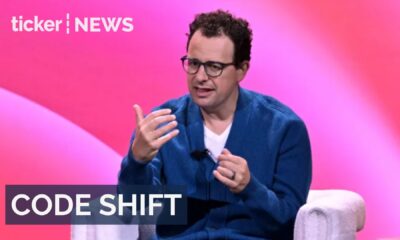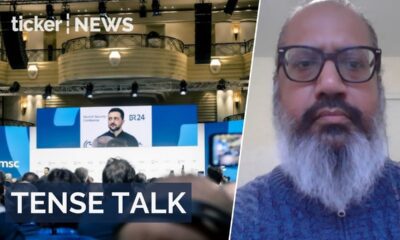Leaders
Innovative and immersive childcare

Leaders
Understanding spikes versus sustainable growth in business
Raffy Sgroi discusses sustainable growth vs temporary spikes in business performance for lasting success and balance
Leaders
Why confident leadership is the missing link in safe AI adoption
Caroline Brewin highlights confidence’s vital role in leadership amid AI’s rise and its impact on organisational transformation
Leaders
SMEs struggle in global supply chains: Building national trade resilience
Bronwyn Reid highlights challenges for SMEs in global supply chains and the need for national trade resilience
-



 Ticker Views3 days ago
Ticker Views3 days agoIsraeli President Herzog visits Australia amid rising antisemitism
-



 Tech3 days ago
Tech3 days agoClaude AI is transforming software engineering and productivity
-



 News4 days ago
News4 days agoRussia missile strikes force Ukraine nuclear plants offline amid safety fears
-



 Ticker Views23 hours ago
Ticker Views23 hours agoLunar Gateway faces delays and funding debate amid Artemis ambitions
-



 News3 days ago
News3 days agoJapan election delivers commanding win for ruling LDP
-



 Ticker Views2 days ago
Ticker Views2 days agoU.S. ambassador responds to NATO criticism at Munich Security Conference
-



 Money3 days ago
Money3 days agoTech stocks slide as investors rotate into small-cap and value plays
-



 News5 days ago
News5 days agoTrump lifts India tariffs after New Delhi halts Russian oil imports






